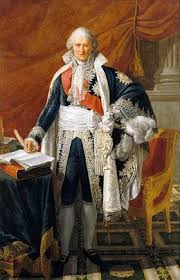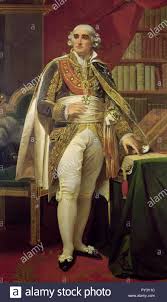|
The Code Napoleon, first modern civil code which spelt out the laws regarding marriage, and inheritance in its first part and, although it has been revised several times since its publication in 1804, is still very influential in French civil life.
One of the principal aims of the new code was to free the family from the shackles of the church and prejudice. Marriage is described as a contract whereby men and women acquire certain rights and duties pertaining to each other and their children. It is possible to see this project as in part defending women’s positions, by making it a public, rather than a private matter. In particular the reforms of the divorce law, while making it harder for a marriage to be dissolved by mutual agreement, also made it nearly impossible for a man to divorce his wife once she was no longer young. But the code is nonetheless very asymmetrical – husbands owe wives protection, but wives owe husbands obedience (article 214) and a wife is obliged to live where her husband decides (215) and cannot plead in her own name unless she has her husband’s permission (216). A woman, but not a man, must wait ten months to remarry after the dissolution of a first marriage (228). While both husband and wife can ask for divorce on grounds of adultery, a woman can only ask for it in case where her husband had moved his mistress into the common home (230). In cases of divorce, the father is given the management of the children (287) except in special circumstances decided by the court. And although many articles refer to both paternal and maternal authority over minor children, there is a whole section dedicated to Paternal Power. One of the main writers of the Code, and the one responsible for the section of family law (I Of Persons) was Jean Etienne Marie Portalis (1746-1807). Portalis, a lawyer from the South East of France, was chosen by Napoleon to help carry out the project begun by Cambaceres under the Directoire of codifying civil law. Portalis was very concerned that the mew Revolutionary laws should not overturn the laws of nature and morality, and this was particularly clear in his treatment of the family part of the civil code. In his Preambule he talks of marriage as a ‘natural order’ that had been in the past sanctified by religion and needed to be recognized by the law. Part of this natural order was the need for one party in the ‘marriage contract’ to be in charge, and that had to be the husband, who was naturally superior to his wife and naturally destined, through his experience and wisdom to have authority over their children. In discussions of the code at the Council of State, Portalis worried about any addition to the marriage law that would have the effect of placing ‘the wife above the husband, or put the power over children into the wife’s hands instead of the husband.’ He concluded that ‘any stipulation against the authority of a husband on the person of his wife or children must be forbidden’, that public right must be confined by public order and morality, and that the main object of family law was to confirm the husband’s rightful place as the head of the conjugal society.
0 Comments
Leave a Reply. |
About
This is where I live blog about my new book project, an intellectual biography of three French Revolutionary women philosophers. Categories
All
Archives
November 2022
|


 RSS Feed
RSS Feed